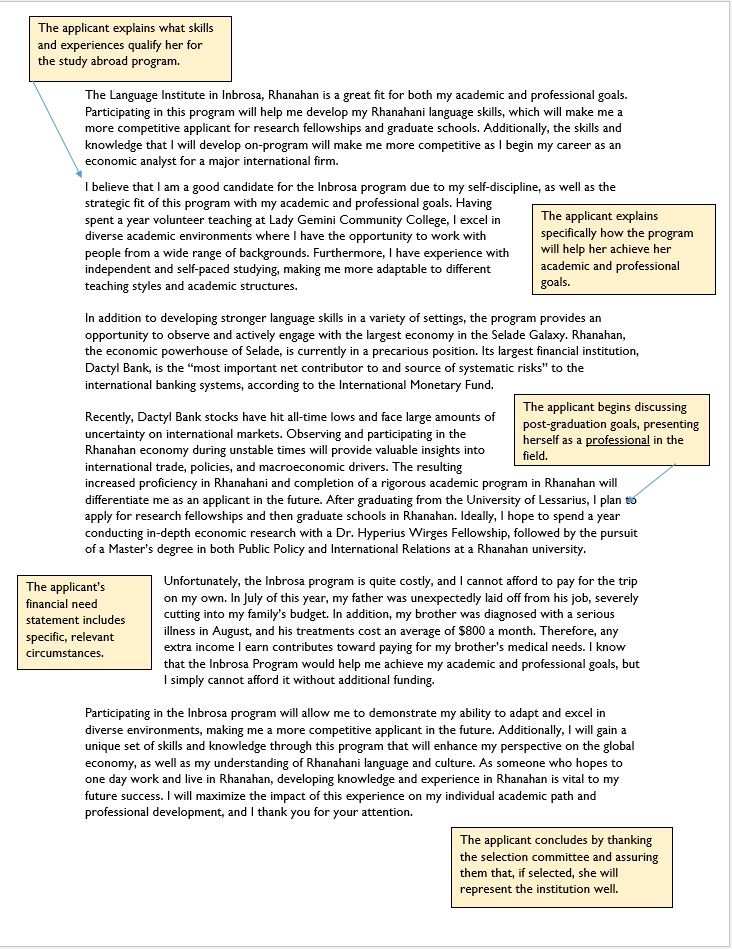Study Abroad Personal Statement
As part of their study abroad scholarship application packet, applicants may be required to submit a personal statement. The personal statement is a brief essay in which the applicant explains why he/she is applying to the study abroad program and what qualifies the applicant to receive a study abroad scholarship.
This resource provides general guidelines for writing a study abroad personal statement. However, specific programs will have different requirements for the personal statement. It is important to tailor your personal statement to the program to which you are applying. The study abroad personal statement guidelines for Walton students, as well as other information about Walton’s study abroad program, can be found at the Global Engagement Office.
This resource was prepared by the Business Communication Lab at the Sam M. Walton College of Business
How do I write a compelling personal statement?
Introduce the personal statement by broadly describing your interest in the study abroad program and how you hope to benefit from the program.
The first section in the body explains what you can bring to the program or internship. How will you benefit and reflect positively upon the institution you will represent? What skills do you have that will make you an outstanding applicant?
Next, explain how the study abroad program will help you achieve both your academic goals and your professional goals. Academic goals are goals involving your coursework, degree program, and scholarly research. Professional goals are goals for after you complete your degree program, such as those pertaining to employment, job marketability, and volunteer work.
Next, but ONLY if the program requires it, provide your financial need statement. Not all study abroad programs require a financial need statement. The financial need statement explains why you need the scholarship funds to help you pay for the study abroad trip. The selection committee is unlikely to select you if they feel you do not really need the money. Be as specific as possible in explaining why you are relying on the scholarship funds. While everyone’s experiences will be different, here are a few circumstances you could discuss in this section:
- Tuition costs
- Other college expenses (e.g., textbooks, transportation)
- Death or serious illness in the family
- Unexpected financial outlay (e.g., loss of employment, natural disaster, automobile accident)
Conclude by showing appreciation to the selection committee and reminding them that, if selected, you will serve as a positive representative of the institution.
What does a personal statement look like?
Different study abroad programs will have different formatting and length requirements for the personal statement. Use this model as an example of what content to include in a personal statement, but always make sure you adhere to the requirements of the program to which you are applying.

General Business Communication
Sound less like a student and more like a professional. Make your writing logically sound, persuasive, and concise by following these tips.
Research & Citations
Save time and energy in research and writing. Follow these tips and watch your research process become more targeted, efficient, and rewarding.
Grammar & Mechanics
The best communicators build credibility through polished, purposeful writing. Compose admirable text by following these essential language guidelines.
ESL Student Guides
American business culture is full of unique language, customs and expectations. Use these resources to build skill and familiarity with the conventions of academic and professional environments.
Oral Communication
Are you experiencing trouble writing or delivering a speech? Use these resources to develop confidence and poise as a public speaker, whether in the classroom or the professional world.
